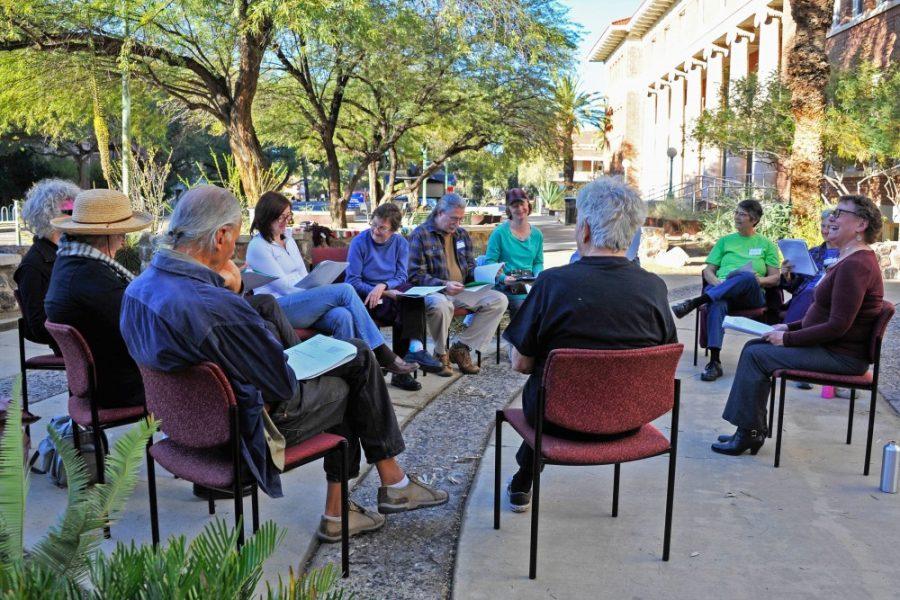The UA Poetry Center and the UA Campus Arboretum have partnered together for the Po é tree series, a collection of poetry discussions that take place outside Herring Hall under the trees on the arboretum.
The poems read and discussed during these events often explore nature and the environment. Sarah Gzemski, the UA Poetry Center publicity and publications coordinator, said being outside for these discussions can help participants appreciate their surroundings more.
“It’s one thing to read at a podium in a room when you’re talking about trees and the desert, but it’s a whole other experience to read it in that environment,” she said.
This is now the third semester of the series, according to Tanya Quist, the director of the Campus Arboretum and an associate professor in the School of Plant Science. Discussions occur on the first Saturday of every month, with a different theme for each discussion. Themes often center on the outdoors or life in the Southwest, Gzemski said.
Participants take turns reading the poems, and after each poem participants can talk about it. Poetry Center docent Barbara Sherman said participants at these events do not need to have prior experience with poetry.
“You just come and enjoy, and if you want to participate you can; if you want to just listen to what other people have to say, to get a feel for it, that’s fine too,” Sherman said.
Sherman said discussions are open to people of all ages, and usually around 12 people attend the discussions. Quist said the number of people attending the events has been increasing and she anticipates the series will continue next year.
Sherman said participants start discussions by “being mindful about where we are with an appreciation for all the plants and all the animal and plant life around us.”
“When you start that way, with mindfulness and appreciation for the planet, I think it’s easier to begin to digest the poetry and to bring it in, to be open to it,” she said.
This kind of appreciation for nature is part of the idea behind the partnership between the Poetry Center and the Campus Arboretum, Sherman said.
Quist said poetry can attach emotion and feeling to words, which might compel people to understand their connection to the environment.

The goals of the Campus Arboretum are to encourage people to think more about stewardship of the natural world including the built environment,” Sherman said. “Primarily we do that through science, but not everyone speaks the language of science, so I think it’s really important to kind of tap into other kind of formats.”
Holding these discussions outside can enhance the impacts of the poetry. Myers said that poetry is often about the connection between humans and the rest of the world.
“There’s something about reading poetry when you’re out there and the sun is shining and there’s a lovely little breeze making the feathery leaves of the mesquite wave that you just begin to feel more a part of the whole,” she said.
The next Po é tree discussion is on Feb. 4 at 3 p.m. outside Herring Hall, and the topic will be “Ecopoetry”–Bearing Witness to the Earth. The Poetry Center librarian Wendy Burk will be at this discussion to lead participants in a poetry writing exercise. Admission is free.









